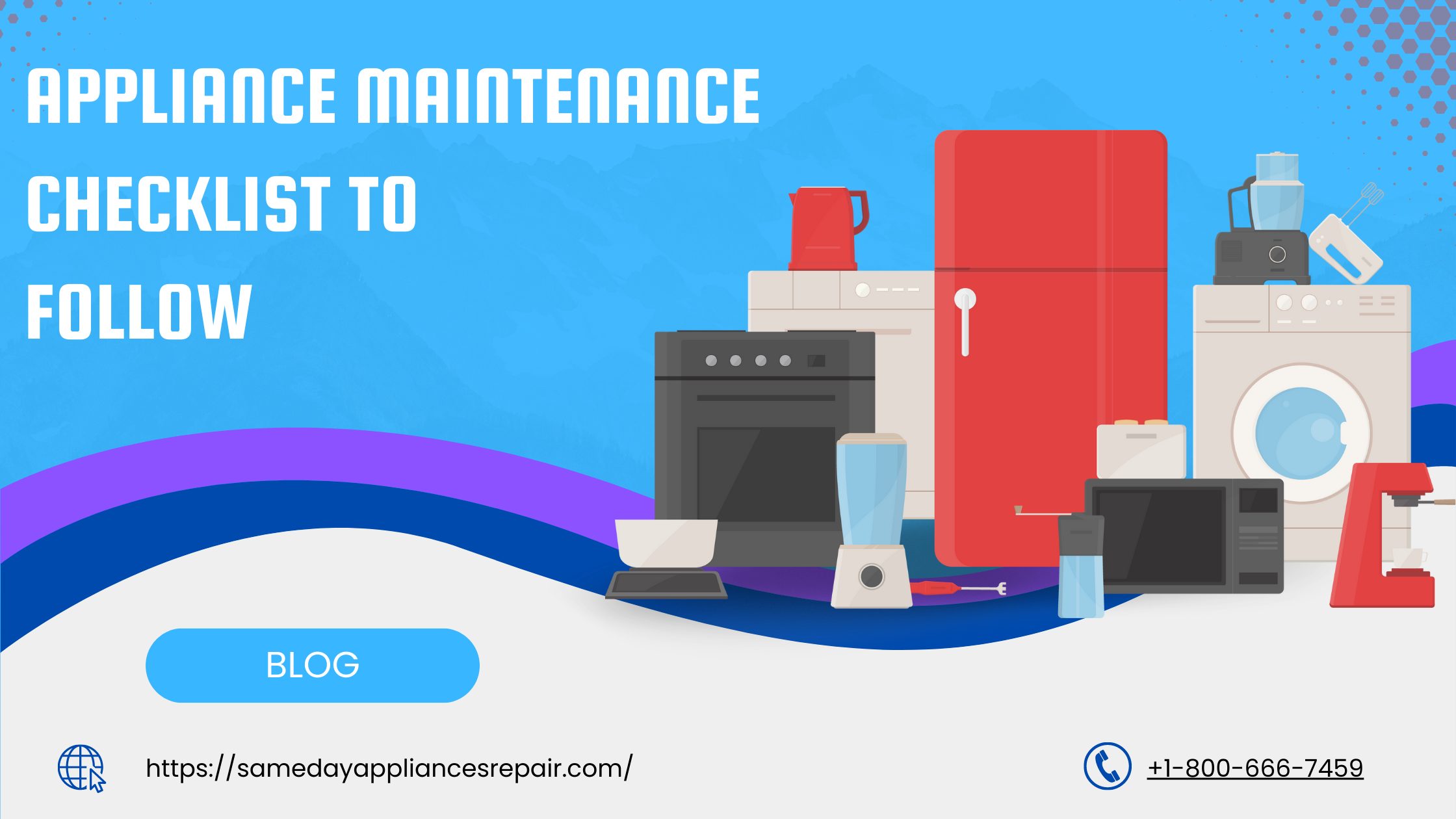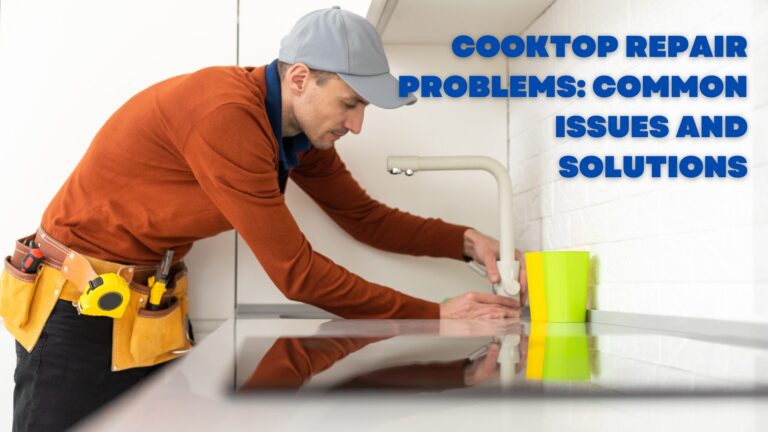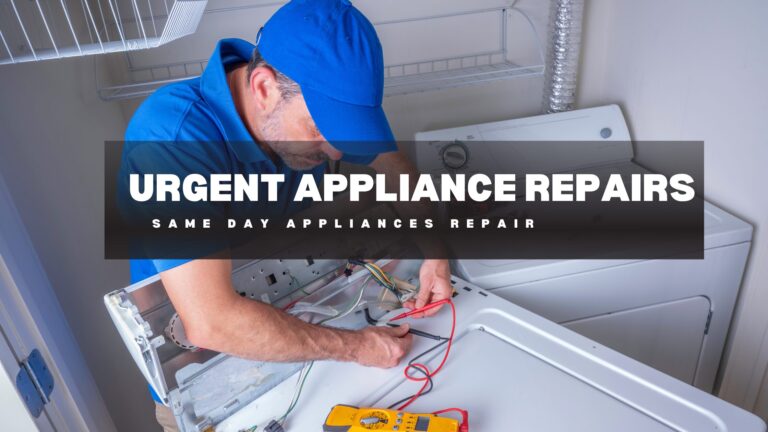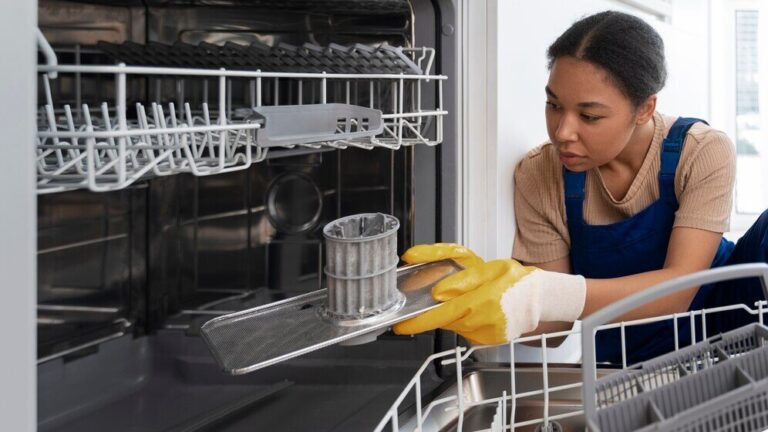Home appliances maintenance is extremely important if you want them to last longer and work efficiently. Regular maintenance for your appliances has several advantages. Firstly, it helps extend their lifespan, ensuring that they last longer and serve you well for a greater period.
Additionally, regular appliances repair and maintenance can enhance their energy efficiency, allowing them to operate more effectively while consuming less energy. This not only benefits the environment but also helps to reduce your overall energy costs.
So, you can enjoy these benefits and more by investing a little time and effort into maintaining your appliances. To ensure your appliances keep running smoothly and prevent any surprise breakdowns or repairs, it’s important to stick to a thorough maintenance checklist.
General Appliance Maintenance Tips
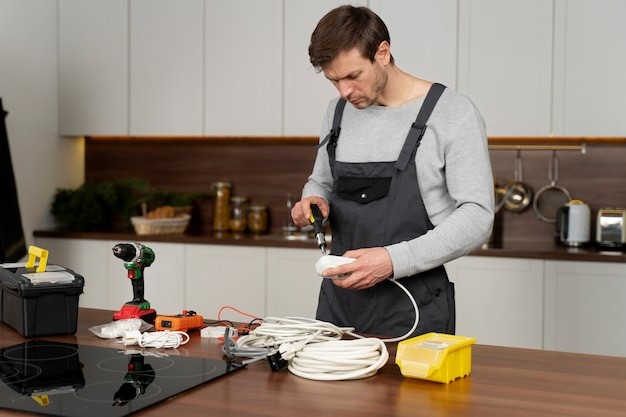
You should follow some general care tips to keep your machines in good shape. Dirt, dust, and other things that can affect their machine performance need to be cleaned regularly.
To find problems early, it’s also important to check equipment for signs of wear and tear, broken connections, or leaks.
- Taking precautions like making sure there is enough airflow and not overloading electrical connections will also help keep them working well.
- Use soft cloths and light cleaners that don’t scratch the surface of your equipment to clean them. Don’t use strong agents that could hurt the finishing.
- Pay extra attention to places that tend to get dirty, like the door seals on the refrigerator, the spray arms on the dishwasher, and the inside of the oven.
- Use stainless steel cleaner or a mix of light dish soap and warm water to keep the shine on products made of stainless steel.
- Don’t forget to clean your appliances’ control panels and buttons to keep dust and dirt from making them hard to use.
- Check for Wear and Tear: Check the power wires, plugs, and electrical connections for signs of wear and tear. If you see frayed, uncovered, or loose wires or connections, you should fix them right away to avoid electrical dangers.
- Check around your machines for leaks or water damage. When there is too much water or wetness, it could be a sign of a deeper problem that needs to be fixed.
- Check the rubber seals or gaskets on machines like dryers and freezers. If you see any cracks or holes, you should fix them so that your insulation stays in good shape and you don’t lose energy.
- Make sure that machines that make heat, like ovens or dryers, have enough room around them so that they can breathe. This let’s heat escape and keeps things from getting too hot.
- Spread the use of high-power products across different outlets to keep the circuits from getting too full.
- Overloading can cause problems with the electricity or even start fires.
Encourage everyone in the family to use tools correctly and to follow the instructions from the maker. If you handle or use something wrong, it could get broken or stop working.
Appliance Maintenance Guidelines
Each major household appliance needs to be taken care of in a certain way for it to work right. Let’s look at some care tips for different types of appliances:
- Refrigerator: Clean the condenser coils, check the covers and repair them if they are broken, and defrost the freezer often.
- Dishwasher: Clean the filter, look for clogs in the spray arms, and make sure the door closes well.
- Washing Machine: Clean the dispenser for the soap, check the lines for leaks or other damage, and make sure the machine is level so it doesn’t shake.
- Dryer: After each use, clean the dust trap, check and clean the vent system, and grease the drum rollers and motor if necessary.
- Oven: Clean the inside of the oven, check for broken cooking elements and repair them, and make sure the electrical connections are tight.
Safety Considerations for Appliance Maintenance
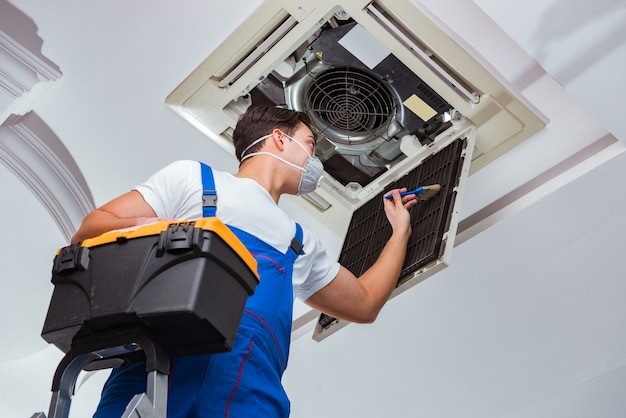
When it comes to appliance maintenance, Safety should always come first. Here are some important things to keep in mind about Safety:
Electrical Safety
Electrical Safety is important. Always unplug your gadgets from the power source before you do any maintenance on them. This makes sure you won’t touch live lines by mistake and lowers the chance of getting an electric shock.
When working with electrical parts, like when you are changing a broken one, make sure to wear protective gloves and use tools that are insulated. If you don’t know much about electrical repairs or appliance maintenance, talking to a professional electrician is best.
Gas Appliances
If you have natural gas or propane appliances, like gas stoves or water heaters, you must put Safety and appliance maintenance at the top of your list. Check gas lines often and look for signs of leaks, like a smell like bad eggs.
If you think there might be a gas leak, open the windows, leave the area, and call your gas company or emergency services immediately. To make sure that gas appliances are operating safely, it is advised to have a trained worker perform annual checks and maintenance.
Prevention of Fires
If certain tools are not properly handled, they can become fire risks. The washing machine is often to blame. If lint builds up in the dryer’s lint box, air hose, or exhaust duct, it can get very flammable and make a house fire more likely.
To keep lint from building up, clean the lint trap after each use and check and clean the air system regularly. When it comes to ovens, check the electrical connections to make sure they are tight and not broken. If you see any loose or broken wires, you should take care of the problem right away to avoid sparks and possible fires.
Chemical Safety
Some tools, like those used for cleaning or appliance maintenance, may need chemical solutions. When using cleaners or solvents, you should always carefully read and follow the advice from the maker.
Put on the right safety gear, like gloves and masks, to keep your skin and eyes from getting hurt. It’s also important to keep poisons in a safe, well-ventilated place where children and pets can’t get to them.
Safety for Each Appliance
During maintenance, each appliance may have its own safety concerns that need to be considered. For example, if you are fixing a refrigerator, don’t use anything sharp to get rid of ice buildup so you don’t hurt the cooling coils.
When you clean the inside of an oven, make sure it is completely cool and be careful not to get burned. Read the instructions or user guides that come with each appliance to find out if there are any special safety measures you need to take.
By paying attention to these safety tips, you can make sure that your appliance maintenance is done in a safe and responsible way. When you put Safety first, you protect not only yourself and your family but also your tools from damage or failure.
Appliance Maintenance Tools and Products
Appliance maintenance will be simplified with the right tools and goods. Think about these important things:
- Solutions for cleaning: Use cleaning products that are safe and right for each appliance. Make sure they won’t hurt sensitive parts.
- Lubricants: Use oils that are made for machines to keep moving parts working well.
- Filters: Replace the filters in your machines, like your air conditioner or vacuum cleaner, on a regular basis to keep them running at their best.
Conclusion
Appliance care and life depend on regular appliance maintenance. By using the full maintenance checklist, you can make sure your machines work well, last longer, and do their jobs well.
Don’t forget to talk about your own maintenance stories or ask any questions in the comments part below. Let’s keep our tools in great shape!

